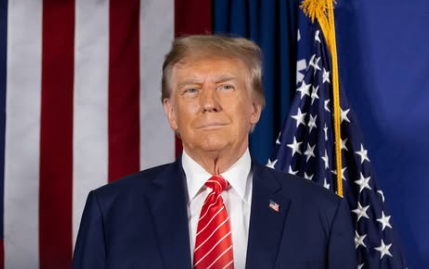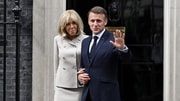Albanese yields on key trade issue after Trump’s tariff threats
By
Maan
- Replies 13
After months of pressure from Donald Trump, Anthony Albanese has reversed a long-standing trade stance.
Australia insisted for months it would not budge on US beef imports due to biosecurity risks.
Now, after years of bans and tariffs, that stance has suddenly shifted.
The Albanese government has lifted a long-standing ban on US beef imports following a decade-long biosecurity review, effectively removing one of the key reasons the Trump administration cited for imposing tariffs on Australian goods.
The move has raised eyebrows, especially after the Prime Minister had publicly refused to make any concessions on the issue just weeks ago.
‘No, we will not change or compromise any of the issues regarding biosecurity, full stop, exclamation mark, it’s simply not worth it,’ Anthony Albanese said in April.
‘Our first priority is biosecurity and there’ll be no compromise on that.’
Despite that earlier stance, Agriculture Minister Julie Collins confirmed on 22 July night that new US tracking systems have met Australia’s standards.
‘The US Beef Imports Review has undergone a rigorous science and risk-based assessment over the past decade,’ she said.
‘The Department of Agriculture, Fisheries and Forestry is satisfied the strengthened control measures put in place by the US effectively manage biosecurity risks.’
Since 2019, Australia had blocked all US beef imports on biosecurity grounds—a decision that prompted Trump to retaliate with a suite of tariffs on Australian products including beef, steel, aluminium, pharmaceuticals, and other goods.
Trump criticised the policy in April, saying: ‘Australia bans—and they’re wonderful people, and wonderful everything—but they ban American beef… they don’t want it because they don’t want it to affect their farmers and, you know, I don’t blame them, but we’re doing the same thing right now.’
Although Albanese initially dismissed the remarks and declared the issue was ‘not up for negotiation’, behind the scenes, tensions escalated.
The Trump administration then introduced a 50 per cent tariff on Australian steel and aluminium, a proposed 200 per cent pharmaceutical tariff, and a 10 per cent charge on various other exports.
With pressure mounting, the Albanese government has now opted to allow processed US beef into the Australian market under strict traceability conditions.
‘Australia stands for open and fair trade—our cattle industry has significantly benefited from this,’ said Minister Collins.
The reversal also comes amid a broader reset of Australia–US trade relations, as Canberra continues to pour money into the AUKUS submarine pact.
Australia quietly handed over another $800 million to the United States at the end of the June quarter, contributing to its total $3 billion commitment under AUKUS Pillar I.
‘The payments are occurring in line with Australia's commitment to contribute $US2 billion by the end of 2025, which underscores our commitment to the successful delivery of AUKUS Pillar I outcomes,’ a Defence spokesperson said.
Meanwhile, Albanese and Trump still have not met face to face.
Their scheduled meeting at last month’s G7 summit in Canada was cancelled after Trump left early to oversee a US strike on Iran’s nuclear facilities.
Another opportunity has been set for September at the Quadrilateral Security Dialogue in India.
If that falls through, the next likely meeting would be during the United Nations General Assembly in New York—where Albanese also plans to visit Washington DC.
Australia’s ambassador to the US, Kevin Rudd, reportedly met with Trump in January, though the details of that meeting remain unknown.
Some have questioned whether Mr Rudd is the right person to engage with the former president, given his past criticisms.
In 2021, Rudd called Trump a ‘village idiot’, a ‘traitor to the West’, and ‘the most destructive president in history’.
Trade decisions like the US beef import reversal don’t just shift policy—they can ripple through markets and impact everyday finances in unexpected ways.
When global leaders clash over tariffs and trade, the fallout often reaches places we don’t expect—like our savings accounts.
One comedian recently shared just how quickly things can unravel when market tensions take hold.
Read more: 'It will come back eventually...right?': Comedian shares massive financial loss within 10 minutes

With tensions easing but face-to-face talks still elusive, the bigger question remains: what will Trump demand next?
Australia insisted for months it would not budge on US beef imports due to biosecurity risks.
Now, after years of bans and tariffs, that stance has suddenly shifted.
The Albanese government has lifted a long-standing ban on US beef imports following a decade-long biosecurity review, effectively removing one of the key reasons the Trump administration cited for imposing tariffs on Australian goods.
The move has raised eyebrows, especially after the Prime Minister had publicly refused to make any concessions on the issue just weeks ago.
‘No, we will not change or compromise any of the issues regarding biosecurity, full stop, exclamation mark, it’s simply not worth it,’ Anthony Albanese said in April.
‘Our first priority is biosecurity and there’ll be no compromise on that.’
Despite that earlier stance, Agriculture Minister Julie Collins confirmed on 22 July night that new US tracking systems have met Australia’s standards.
‘The US Beef Imports Review has undergone a rigorous science and risk-based assessment over the past decade,’ she said.
‘The Department of Agriculture, Fisheries and Forestry is satisfied the strengthened control measures put in place by the US effectively manage biosecurity risks.’
Since 2019, Australia had blocked all US beef imports on biosecurity grounds—a decision that prompted Trump to retaliate with a suite of tariffs on Australian products including beef, steel, aluminium, pharmaceuticals, and other goods.
Trump criticised the policy in April, saying: ‘Australia bans—and they’re wonderful people, and wonderful everything—but they ban American beef… they don’t want it because they don’t want it to affect their farmers and, you know, I don’t blame them, but we’re doing the same thing right now.’
Although Albanese initially dismissed the remarks and declared the issue was ‘not up for negotiation’, behind the scenes, tensions escalated.
The Trump administration then introduced a 50 per cent tariff on Australian steel and aluminium, a proposed 200 per cent pharmaceutical tariff, and a 10 per cent charge on various other exports.
With pressure mounting, the Albanese government has now opted to allow processed US beef into the Australian market under strict traceability conditions.
‘Australia stands for open and fair trade—our cattle industry has significantly benefited from this,’ said Minister Collins.
The reversal also comes amid a broader reset of Australia–US trade relations, as Canberra continues to pour money into the AUKUS submarine pact.
Australia quietly handed over another $800 million to the United States at the end of the June quarter, contributing to its total $3 billion commitment under AUKUS Pillar I.
‘The payments are occurring in line with Australia's commitment to contribute $US2 billion by the end of 2025, which underscores our commitment to the successful delivery of AUKUS Pillar I outcomes,’ a Defence spokesperson said.
Meanwhile, Albanese and Trump still have not met face to face.
Their scheduled meeting at last month’s G7 summit in Canada was cancelled after Trump left early to oversee a US strike on Iran’s nuclear facilities.
Another opportunity has been set for September at the Quadrilateral Security Dialogue in India.
If that falls through, the next likely meeting would be during the United Nations General Assembly in New York—where Albanese also plans to visit Washington DC.
Australia’s ambassador to the US, Kevin Rudd, reportedly met with Trump in January, though the details of that meeting remain unknown.
Some have questioned whether Mr Rudd is the right person to engage with the former president, given his past criticisms.
In 2021, Rudd called Trump a ‘village idiot’, a ‘traitor to the West’, and ‘the most destructive president in history’.
Trade decisions like the US beef import reversal don’t just shift policy—they can ripple through markets and impact everyday finances in unexpected ways.
When global leaders clash over tariffs and trade, the fallout often reaches places we don’t expect—like our savings accounts.
One comedian recently shared just how quickly things can unravel when market tensions take hold.
Read more: 'It will come back eventually...right?': Comedian shares massive financial loss within 10 minutes
Key Takeaways
- Australia lifted a five-year ban on US beef following a decade-long biosecurity review.
- The reversal comes after mounting pressure and tariffs from the Trump administration.
- The Albanese government claims new US tracking systems meet strict biosecurity standards.
- This policy shift coincides with Australia’s ongoing multi-billion dollar commitment to the AUKUS pact.
With tensions easing but face-to-face talks still elusive, the bigger question remains: what will Trump demand next?








